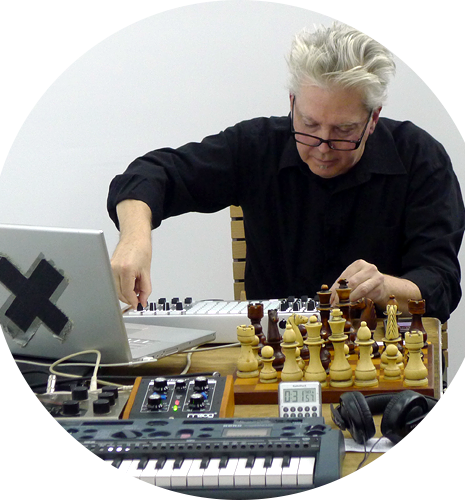2014 Update
"What has the Herb Alpert Award meant to me? Specifically, it allowed me to complete and produce the opera Dice Thrown, which was a work-in-progress at the time I applied for the prize in 2008. I knew that Dice Thrown was a complex idea that was going to be a challenge to produce. Getting the Alpert allowed me explore whether a method of working and creating was possible, to believing that was it possible and then finally completing the work and having it realized. For an experimental opera that's really a great distance. It turned out to be the beginning of a trajectory that continues to this day.
After I got the Herb Alpert Award in 2009, I met David Rosenboom, dean of the CalArts School of Music. We talked about my ideas for Dice Thrown, and he said it was perfect for the once-a-year Festival that bring together the Theatre, Dance, and Music schools.
This started the whole boat going. It was indeed complicated to produce and, at first, all the tech people said, "I don't know if this is possible. How does this really work?" I explained that at every performance everything would change. Everything. The choreography, the sets, the singing, the videos. I put all of these independent elements together with a clear plan as to how they would be re-ordered/arranged/re-positioned using chance - like having a computer program throw 10.000 coins and determining the order, timing, position on stage of each singer's arias, when the choruses would happen and what the text would be, where the dancers would have to move, and where they couldn't move without running into a singer! – and the orchestral music got thrown up in air and came down in new place.
It was premiered in the CalArts Modular Theatre in the Spring of 2010. There were two performances; in each, the second half of the evening was a new iteration, generated by chance operations, of the same materials as in the first half - including video, set design and lighting. After the performances, everyone involved in the production said: "We could do this for a month." They finally came to the understanding that this method of working was not only possible but made complete sense.
If you plan and organize things, you can have any number of random combinations. Doing this, you see how mechanisms and things interact, and are actually complementary in ways that highlight their independence. You discover something new about the Mallarmé text every time. Suddenly you'll catch one phrase or word or moment in a different way, and someone sitting next to you will catch something else. At every performance and in every seat people have different experiences, all equally valid.
Sometime after the performances, I spoke with Cage's computer person and he told me that's exactly what Cage had had in mind for his Europeras I and II, that they have the possibility of being performed differently every night. Too many moving parts I guess prevented this from happening, and perhaps in too settled-in-their-ways opera houses.
Realizing Dice Thrown led to composing many new chamber pieces, string quartets, live electronic pieces, and other operas including Sappho Fragments that I worked on closely with poet Anne Carson who is a big influence on me. (It hasn't yet been performed.)
I'm working now on an opera based on Beckett's short prose text Ping and have I've just finished rehearsing with Joan LaBarbara. It will be produced by "Experiments in Opera" at the Abrons Art Center at the end of February and will be streamed post-performance on WQXR.


